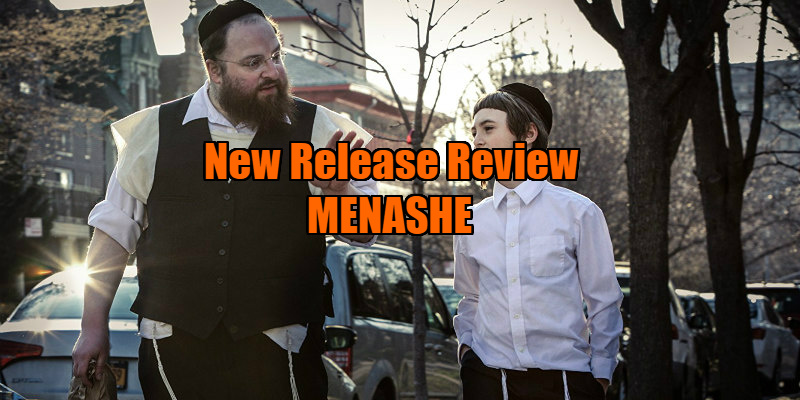
A year after the death of his wife, a Brooklyn man's attempts to take custody of his son are hindered by Hasidic tradition.
Review by Eric Hillis
Directed by: Joshua Z Weinstein
Starring: Menashe Lustig, Yoel Falkowitz, Ruben Niborski, Meyer Schwartz

Back in the mid '90s, a cinema in my hometown of Dublin played Lee Tamahori's Once Were Warriors for over a year on one of its screens. A tale of Maoris in New Zealand may not seem the most obvious film to connect with an Irish audience, but Dubliners couldn't get enough of it. There's always something enticing about a movie that introduces you to a world that's previously been completely alien to your eyes, and if it happens to feature universal themes, all the better.
Like Tamahori's film, Joshua Z Weinstein's directorial debut, Menashe, takes us into a very specific cultural milieu - the thriving Hasidic Jewish community of the New York borough of Brooklyn - but our guide, the titular Menashe (Menashe Lustig), is as relatable a protagonist as you'll find in any drama.

A year after the death of his wife, Menashe is having a hard time. He works a soul-destroying job in a local grocery, taking passive aggressive abuse from his boss on a daily basis. His 10-year-old son, Rieven (Ruben Niborski), is living with his brother-in-law's family, as the local Rabbi has decided Menashe cannot take custody of the boy until he finds a new wife.
Trouble is, Menashe isn't exactly a catch. He struggles financially, he's prone to getting sozzled, is overweight, and he doesn't embrace his religion in the way his community, or potential spouses, would like. But Menashe doesn't really want to get married, as his relationship with his late wife was far from harmonious.

In more clunky hands, Menashe may have played like Mrs Doubtfire with tzitzit replacing apron strings, but Weinstein's film is far more nuanced, and his protagonist is a complicated figure. He's a loveable big bear, but while we want Menashe to be reunited with his son, the film makes it very clear that he's far from suited to raising Rieven on his own. While those who pour scorn on him in the community are an abrasive bunch, and their beliefs will rankle secular viewers, you can't deny they have a point. Menashe's desire for independence isn't matched by his abilities to fashion a comfortable life, and he's a black sheep in a community of high achievers.
With the vast majority of the dialogue delivered in Yiddish, and featuring a cast of unknowns, there's a tangible verisimilitude to Weinstein's film, and you almost get a sense at times that you're intruding on a secret world. Yet the film's Hasidic community serves as a microcosm for larger societal concerns, and to this day there are few cultures that aren't governed by rules established by some strand of religion.

This may not read as the endorsement it might have been a few years ago, but with its New York setting and a focus on the struggles of a single father, Menashe plays a lot like Louis CK's TV show Louie, Lustig's shambling, put upon protagonist a Hasidic cousin to the fictionalised version of himself CK portrayed. The scenes shared between Lustig and Niborski have a lot of charm, the father and son adorably resembling differing layers of a Matroska doll as they walk side by side in their traditional garb.
Menashe is a movie about kicking against the pricks, when you know the pricks are right and you're running out of the energy required to keep fighting. Some people just aren't good at life, and the titular widower of Weinstein's impressive debut is one. Some people are very good at observing life however, and Weinstein would certainly appear to fall into this category.

Menashe is in UK/ROI cinemas December 8th.

